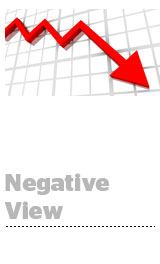 Here’s today’s AdExchanger.com news round-up… Want it by email? Sign-up here.
Here’s today’s AdExchanger.com news round-up… Want it by email? Sign-up here.
Sad Emoji?
Did ad tech investment activity deflate in 2016? According to the Financial Times and CB Insights, funding dropped 33%, from $3.2 billion to $2.2 billion. The FT’s sources attribute this supposed slump to that persistent bogeyman, the Facebook-Google duopoly, which “own large chunks of the supply chain and can tap their treasure troves of personal data.” Read it (sub required). Not as clear from the story: Where does marketing tech fit in? And how will 2016’s big-time exits and its IPO momentum (The Trade Desk, AppNexus) influence investor sentiment?
Counterpoint
In a lengthy blog post, AppNexus CEO Brian O’Kelley takes apart the prevailing negative sentiment on ad tech and argues the Google-Facebook “duopoly” is a fantasy. The two companies are dominant publishers, he concedes. But! “Whether or not you believe ad networks are ‘ad tech’ or not, it’s pretty obvious that Google isn’t winning in ad tech. They’re big and powerful – even dominant – but that’s not where they’re growing.” Citing financial filings, he speculates programmatic is probably cannibalizing Google’s ad net revenue. “This is actually a good sign for ad tech and for the digital advertising ecosystem.” Read the whole thing.
Facebook’s Offline Data
Facebook is fairly transparent about its data collection, “but the tech giant gives users little indication that it buys far more sensitive data about them,” writes ProPublica’s Julia Angwin, along with two co-authors. Facebook’s unparalleled first-party data gets all the attention, but it has a big appetite for third-party insights as well. The company buys personal income, credit history, car ownership and real estate data from Datalogix (its first such deal in 2012), Epsilon, Acxiom, Experian, TransUnion and WPP. And unlike Facebook’s first-party tracking, which users can switch off, the aggregated sources require individual opt-outs. More.
AMPed Up
Google’s Accelerated Mobile Pages is a mixed bag for publishers, reports The New York Times. Big publishers tend to see stronger traffic and engagement, while smaller sites can be left out in the cold. It could just be that AMP needs more time to hone results. As Search Engine Land has demonstrated, broad searches tend to surface AMP pages, while specific searches return organic results (and stronger intent). For instance, “Kanye West” returns an AMP carousel of a few major publishers, while the query “What did Kanye say?” returns no AMP pages but significantly higher click-throughs.
Snap Dash
Snapchat has seen a fairly quick uptake of “goal-based bidding,” which lets advertisers optimize for specific user actions, rather than total impressions. GBB lets ad buyers set a target price for a preferred action (i.e., a swipe-up), and Snap delivers the campaign to users who are likely to take that action. According to the company, 20% of advertisers are using GBB, and these have seen 40% improved efficiency in their cost per swipe. More. Snapchat also plans to improve measurement on its platform this year by opening up to more third-party verification partners.
But Wait, There’s More!
This post was syndicated from Ad Exchanger.

More Stories
Laura Tupou takes on the weather in new role
Revolving Door Roundup: New Administration, New Assignments for CBS News’ D.C. Bureau
Out-of-home advertising hits new heights in Aotearoa during 2024